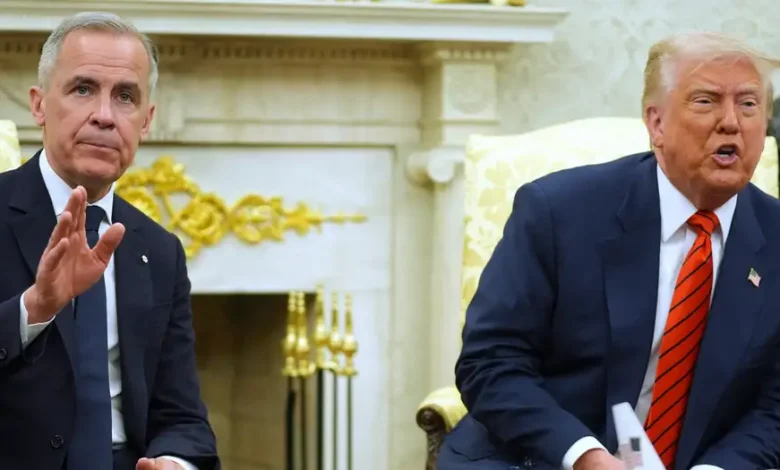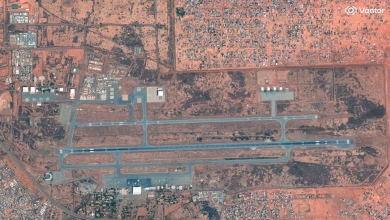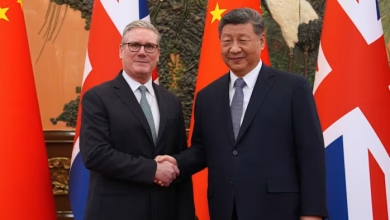Trump says he’s ending ‘all trade negotiations’ with Canada

USA: US President Donald Trump said Friday he was cutting off “all trade negotiations” with Canada because of a “fraudulent” ad campaign against US tariffs.
Trump was referring to a television advertisement aired by the government of Ontario province that featured former President Ronald Reagan’s warnings about the long-term risk of tariffs.
Earlier, Canadian Prime Minister Mark Carney also said wanted to double his country’s exports to countries outside the US because of the threat posed by Trumps tarrifs.
What did Trump say about Canada?
“The Ronald Reagan Foundation has just announced that Canada has fraudulently used an advertisement, which is fake, featuring Ronald Reagan speaking negatively about tariffs,” Trump posted to Truth social.
He then continued, saying: “Tariffs are very important to the national security and economy of the USA. Based on their egregious behavior, all trade negotiations with Canada are hereby terminated.”
Ontario Premier Doug Ford, who has played a key role in trade negotiations with the US, announced the ad campaign earlier this month.
What did the Ronald Reagan Foundation say?
In a post on X late Thursday, the foundation said Ontario used and edited remarks from Ronald Reagan’s “Presidential Radio Address to the Nation on Free and Fair Trade” without permission. In the post, it said the views had been misrepresented, although it did not specify in what manner.
The foundation said it was “reviewing legal options in this matter” and invited the public to view the unedited version of Reagan’s April 25, 1987, speech.
Reagan viewed free trade as compatible with using tariffs to defend American jobs and industries. His administration imposed a temporary 100% tariff on Japanese electronics and additional duties on other industrial goods, prompting criticism from some free market supporters who saw the measures as protectionist.
Ronald Reagan was an advocate of free trade and first proposed a “North American accord” during his 1979 presidential campaign, envisioning open trade between the US, Canada, and Mexico.
Though initially dismissed, the idea gained traction once Reagan took office. He later signed a trade agreement with Canada that laid the groundwork for the North American Free Trade Agreement (NAFTA), which was finalized under Presidents George H. W. Bush and Bill Clinton.
In the speech in question, Reagan said tariffs could sometimes work for a “short time” in protecting US workers’ jobs.
Longer term, he said, “such trade barriers hurt every American, worker and consumer.”
“High tariffs inevitably lead to retaliation by foreign countries and the triggering of fierce trade wars. Then the worst happens. Markets shrink and collapse, businesses and industries shut down and millions of people lose their jobs.”
How are US-Canada trade relations?
Some 85% of cross-border trade between the United States and Canada remains tariff-free under an existing agreement, but Washington’s global tariffs on steel, aluminum and autos have put pressure on Canadian industries.
The measures, introduced under Trump, have led to job losses and rising costs for Canadian manufacturers.
Carney has voiced optimism about progress toward easing trade restrictions in those sectors but has acknowledged that Trump appears determined to maintain tariffs on foreign-made vehicles.





